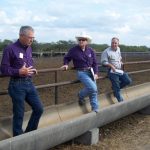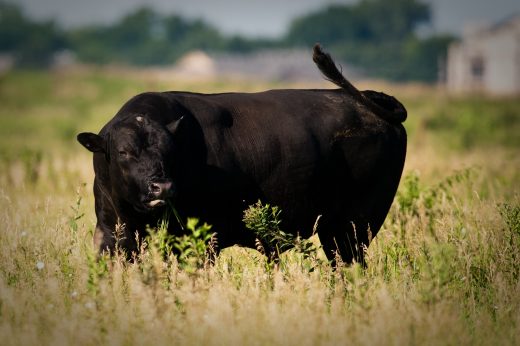By Jeff Davidson, K-State Watershed Specialist
Over fifty local producers, K-State researchers, and other experts gathered for a feedlot field day in early October to discuss the importance of both cattle and feeding facility management. The event showcased the well-designed and managed cattle backgrounding facility owned by Jarret and Shawna Moyer north of Emporia. K-State watershed specialists used the event to stress the importance and value of feedlot management in relation to water quality.
The farmers and ranchers who attended reported a measurable increase in knowledge about the day’s topics, which included: conservation, alternative watering systems, cover crops, site selection, managing runoff, and cattle handling facilities and techniques. Event organizers said that, based on a written evaluation, 83 percent of participants also plan on sharing their new knowledge with other producers. Already, some attendees have reported that they plan to change their home operations to benefit the waters of Kansas. Continue reading “Feedlot managers make changes to protect water quality”

